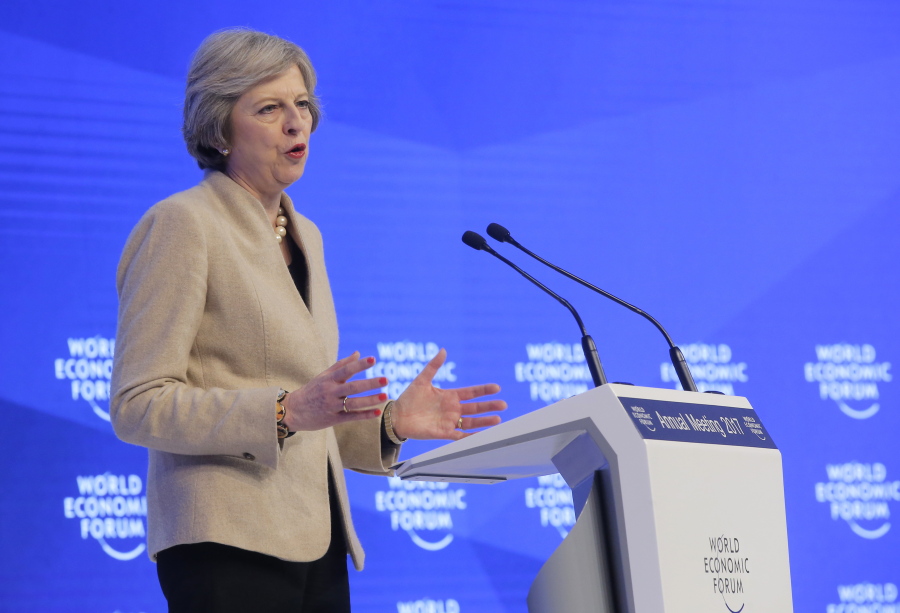LONDON — Being the first European leader through the door of Donald Trump’s White House is a distinction that British Prime Minister Theresa May worked hard to get. But it’s one that comes with a daunting set of challenges.
May will visit Washington Friday. Her stated goal is to engage the new president on questions about the future of NATO and Syria’s civil war. Her most important task is to nail down details of what a U.S.-Britain. trade deal would cover.
But what common ground can there be between a prime minister who sees herself as a champion of global free trade and a president who sees commerce as “other countries making our products, stealing our companies and destroying our jobs”? How does a woman with a Muslim in her Cabinet deal with a man who said he wanted to ban all adherents of Islam from entering the U.S.?
May was keen the emphasize the positive.
“He’s already said to me that he wants to see a very strong relationship between the U.K. and the U.S. going into the future,” she said Sunday on BBC, before insisting that she would stand up to the president. “Whenever there is something that I find unacceptable, I won’t be afraid to say that to Donald Trump.”
The usual approach of British prime ministers to American presidents is to get as close to them as possible, whatever the differences of political allegiance. A shared ideology may have smoothed the way for Margaret Thatcher and Ronald Reagan, but Tony Blair didn’t let partisan disagreement stop him from joking about sharing toothpaste with George W. Bush. David Cameron and Barack Obama seemed to enjoy each other’s company and provided mutual political support when needed.
Trump is a different proposition. During his election campaign he was viewed from Britain as such an improbable candidate that politicians dropped their usual diplomatic restraint and publicly criticized him. Women marched to protest his inauguration in Britain’s cities, as well as America’s. About 5 percent of Britain’s population is Muslim. Too close a public relationship could be politically painful at home for May.
She does have some cards to play. Trump has praised Britain’s decision to leave the European Union. If he sees that as part of the same movement as Trumpism, he might be compelled to support trade talks, whatever his rhetoric.
Jeremy Corbyn, leader of the opposition Labour Party, was skeptical about the possibility of Trump offering a good deal. He described Trump’s inaugural speech as “America first, America only, America inward-looking,” and said it didn’t suggest that “Donald Trump is suddenly going to roll over and offer some kind of trade deal with Britain which doesn’t have strings attached.”
By going enthusiastically to meet him, May also allows Trump to portray himself as someone taken seriously by other leaders. And she can offer him things that even a billionaire can’t buy, like a stay at Buckingham Palace as a guest of the queen. The prime minister said Sunday that invitation was for the palace to announce, but dropped a strong hint that it would come this year.
Still, Trump isn’t the only international leader May has to deal with. Britain sends more than twice as many exports to the EU as the U.S., making a trade deal there far more important. EU leaders could resent her cozying up to someone who has predicted the breakup of the bloc and described it as “basically a vehicle for Germany.”
But there are signs that other leaders also accept the need to find middle ground with the president. Germany’s Angela Merkel said over the weekend that she was planning to work on the relationship. “Even when there are differences of opinion, compromises and opportunities can best be found when working together with mutual respect,” she said.
So it could be that May’s insights into private talks with a man that few EU leaders have met give her something to talk about at the next EU summit.



